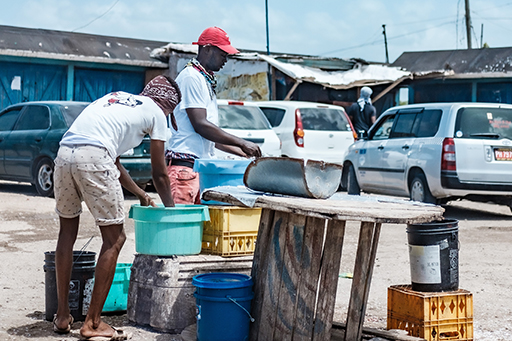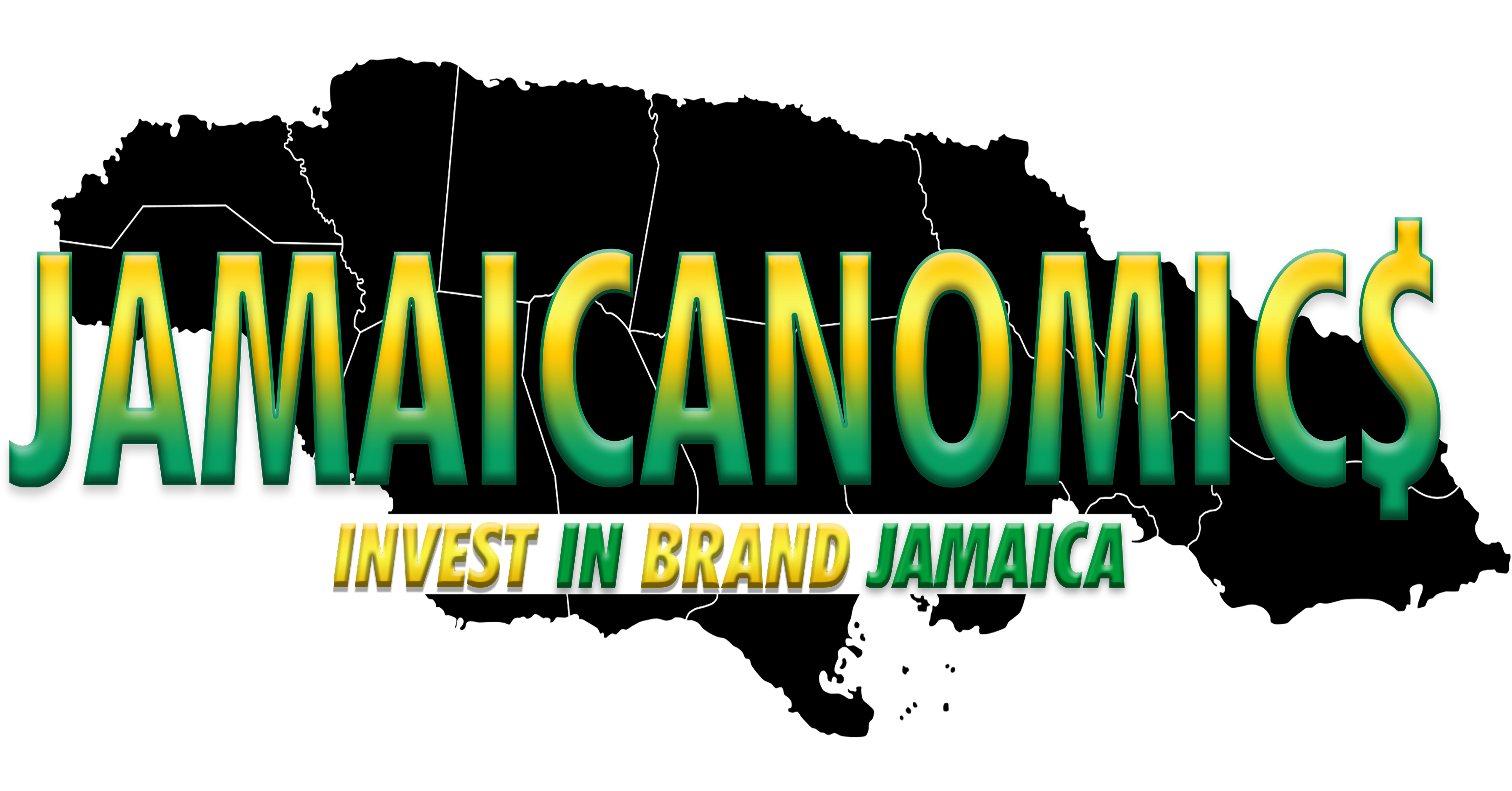JAMAICANOMIC$:
CURATING THE LEGACY OF JAMAICAN
ACHIEVEMENTS IN THE DIASPORA & PROMOTING
BRAND JAMAICA GLOBALLY.
OUR STORY
Welcome To the Jamaican Diaspora
THE JAMAICAN DIASPORA
By Clive Williams
They are distinguished by their music, food, athletic prowess, and work ethic; the ambitious and highly motivated Jamaicans who left the island to pursue their dreams can be found in the far corners of the world. That is the Jamaican diaspora! Their ubiquitous influence spans the United States, the United Kingdom, Canada, and all along the Caribbean Coast of Central America, mainly, Cuba, Panama, Costa Rica, Columbia, Nicaragua and Honduras. In more recent times, other countries have become the destination for this ever-expanding diaspora. Australia, the Netherlands/Holland, and France are now home to Jamaicans, while Ghana, Nigeria, and Ethiopia which for some Jamaicans are ancestral – are now home to the diaspora.


However the United States has become the major destination for Jamaican immigrants since the 1960’s, the American economy is always in need of a skilled workforce and Jamaicans filled the need for nurses, teachers and other skilled professionals. If I received a dollar for every time a curious White or Black American asked me why I came to America, I could retire much earlier than planned; sometimes though, that curiosity morphs into hostility, as the question becomes, “what are you doing in America?” In one way or another, every Jamaican has had to face that scrutiny, that litmus test of our reason, or our motivation to be American; some like me responded proactively, “I came for opportunities that I couldn’t access in Jamaica, but I also have something to offer America – my skills, education and experience.” Others were piqued by
their inquisitors and vowed to return home as soon as they could afford to; useless to say that most never return, because now they have tasted the fruits of at least some opportunity, and some security.
Despite that dichotomy, the Jamaican Diaspora have established an enviable record as uber producers in their work lives, having the reputation of holding down at least two or three jobs at a time, and becoming homeowners in record time. That’s what we call Jamaicanomics, without legacy, no succession rights, Jamaicans build something out of little or nothing; even though as a diaspora we are the butt of jokes about our superhuman work ethic, our unwavering patriotism and our love of Patties, Curry Goat and Jerk Chicken.
Are we different from any other ethnic diaspora group? Stop and think about that for a moment, according to the most recent American Community Survey (5-year estimates), from the United States Census Bureau, as of 2020 there are 861,801Jamaicans in the USA. Now you and I know better, many Jamaicans never responded to the census, which makes 1million Jamaicans the more realistic estimate. Even at one (1) million estimate Jamaicans, their influence and impact on the American, and global culture is disproportionate; almost every other culture is trying to talk Jamaican, play Jamaican reggae, consume Jamaican Jerk Chicken, eat Jamaican patties, and watch Jamaican sprinters run. We consistently punch way above our weight class anywhere we go, that’s what makes us different! That’s Jamaicanomics!
However there still seems to exist a subtle gap between thinking as an immigrant and thinking as part of the diaspora, it is our job to complete that conversion. But it is the sense of belonging, the feeling of being part of a settled community, a proud community, being a stakeholder in the fortunes of that community – that is what makes for a Diaspora!
What other term best describes the confident, but unorthodox way Jamaicans have impacted the global space with their musical, athletic, cultural, and culinary assets – isn’t it Jamaicanomics?
That inimitable way of building strong, viable communities in Brixton, London, Ontario-Canada, New York, Connecticut, Florida, Georgia, Maryland, and California. Jamaican economics/Jamaicanomics is nothing new, it is exactly what Marcus Garvey taught and if the current trends continue, the Jamaican diaspora will make a difference in expanding its support
for our homeland of Jamaica beyond remittances and barrels. That will be Jamaicanomics 2.0!
The Jamaican diaspora is alive with social, cultural, religious, businesses and political activity, and has the economic and educational resources to support the further development of its island home. Successive Jamaican government administrations have tinkered with the potential the diaspora has to offer but has never truly tapped into that potential; some efforts have been made since 2004 with the formation of the Diaspora Advisory Board as a mechanism to deepen the
engagement process between the Jamaican government and Jamaicans in the diaspora. The Ministry of Foreign Affairs & Foreign Trade have been assertive in their efforts to bridge the relationship with the Jamaican diaspora and has successfully gained parliamentary approval to establish that bridge. The formation of the Global Jamaica Diaspora Council to succeed the Diaspora Advisory Board has put in place what they describe as a more globally inclusive process to enhance its relations with the diaspora.
The following attachments are courtesy of the Jamaican information Service:
Cabinet Approves National Diaspora Policy
Cabinet
June 15, 2022
Written by: Chanel Spence

Minister of State in the Ministry of Foreign Affairs and Foreign Trade, Senator the Hon. Leslie Campbell, officially opens the Jamaica 60 Diaspora Conference during a ceremony held at the Ministry in downtown Kingston on Tuesday (June 14), which was streamed online.
Photo: Adrian Walker

Minister of State in the Ministry of Foreign Affairs and Foreign Trade, Senator the Hon. Leslie Campbell, officially opens the Jamaica 60 Diaspora Conference during a ceremony held at the Ministry in downtown Kingston on Tuesday (June 14), which was streamed online.
Photo: Adrian Walker
The National Diaspora Policy has been approved by Cabinet, and a Plan of Action to implement the strategies identified is currently being drafted.
Details were shared by State Minister in the Ministry of Foreign Affairs and Foreign Trade, Senator the Hon. Leslie Campbell, during Tuesday’s (June 14) opening ceremony of the Jamaica 60 Diaspora Conference at the Ministry’s downtown Kingston headquarters and online.
He said that the June 14 to 16 conferences will serve as a forum to discuss key elements of the Plan of Action.
The National Diaspora Policy reflects the commitment of the Government of Jamaica (GOJ) to pursue diaspora-related strategies and initiatives that are mutually beneficial to the national development process and the well-being of its diaspora population.
The policy provides the framework for enhancing the principle of mutuality between Jamaica and the diaspora.
It is aligned to the goals articulated in the National Development Plan, Vision 2030 Jamaica, which is aimed at creating a framework for Jamaica to achieve developed country status, as well as national priority documents such as the Medium-Term Socio-Economic Policy Framework.
Senator Campbell noted that technology will be critical in achieving the goals of the policy, as there will be need for “access to reliable, regular and updated statistics of the size, location, and demographic characteristics of diaspora members”.
As such, he said that the Ministry will be collaborating with international partners to develop a Digital Portal and Diaspora Registration Platform to collect data to facilitate evidence-based decision-making for diaspora engagement.
“A feasibility study will also be developed, in consultation with the diaspora, on a Jamaican Diaspora Engagement Model,” he added.
Discussions during the Diaspora Conference will focus on re-energizing and motivating members of the diaspora to be active partners during the post-COVID-19 era and provide updates on the progress of national and socio-economic developments and actions for increased customer satisfaction in key service areas that are of critical importance.
Meanwhile, Senator Campbell emphasized that the Government remains committed to harnessing the full potential of the Jamaica diaspora.
He said it is recognized that the remittance industry needs to be formalized and modernized and is pleased that the International Organization for Migration will support the Government’s efforts in this regard.
Senator Campbell officially opened the ninth Biennial Jamaica Diaspora Conference, which included participation from overseas nationals, members of the diplomatic corps, the business community and government offic
Above report courtesy of the J.I.S
The above press conference is indicative of the government’s intent to engage proactively with the Jamaican diaspora, however that intent must consider the complexity of imposing its intent on a community that has its own ideas on engagement with the politics of Jamaica. The diaspora must have the autonomy to create its own leadership to ensure that the two-way conversation is a balanced one; the obvious need for funding diaspora activities must also be a joint venture because of governments inherent inability to deliver on funding in a timely manner. All this means that the Jamaican government approach to the Jamaican diaspora needs to be a very nuanced one. An approach that considers the ex-officio autonomy of a diaspora that has its own ideas, its own fault-lines, and its own political opinions on diaspora engagement. I will attach for your further information some questions and answers provided courtesy of the Global Jamaica Diaspora Council.
Drop Us a Line
We want to hear from you! Share your stories of business development in JA. Click the button below.

